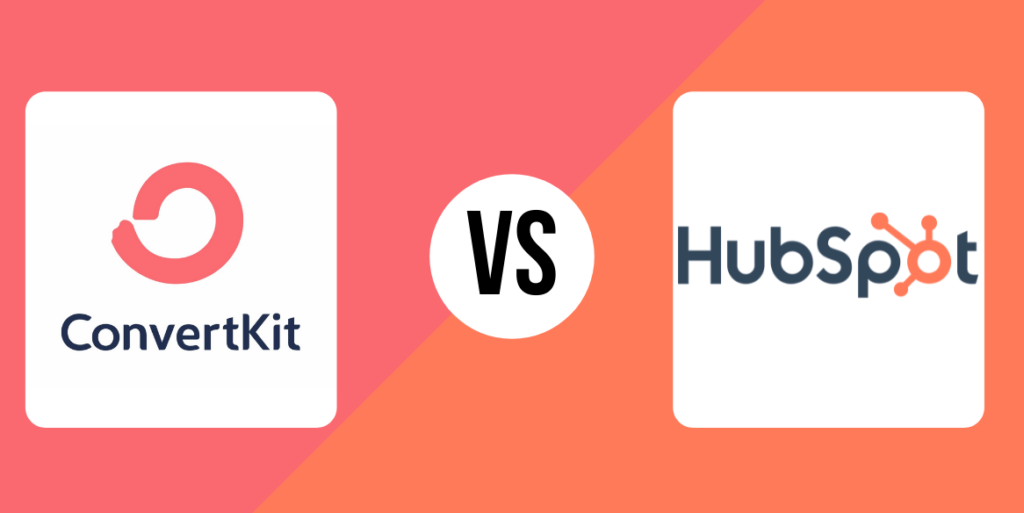In today’s digital marketing landscape, email marketing remains a powerful tool for nurturing leads, driving sales, and building relationships with your audience. But with a plethora of platforms available, choosing the right one can be overwhelming. Two industry titans, ConvertKit and HubSpot, often top the charts. But which one is right for you? This in-depth comparison breaks down the key features, pricing structures, and target audiences of ConvertKit vs. HubSpot, empowering you to make an informed decision.
Understanding Your Needs
Before diving into the specifics, take a step back and identify your marketing goals. Are you a solopreneur or a small business owner with a focus on building an email list and crafting targeted email campaigns? Or are you a larger organization seeking a comprehensive marketing suite with features beyond email?
ConvertKit: Streamlined Email Marketing for Creators
ConvertKit is an email marketing platform specifically designed for creators, bloggers, course sellers, and coaches. It prioritizes simplicity, affordability, and powerful email automation features.
Pros of ConvertKit:
- User-Friendly Interface: ConvertKit boasts a clean and intuitive interface, making it easy for beginners to navigate.
- Focus on Email Marketing: Unlike HubSpot, ConvertKit isn’t cluttered with a multitude of features beyond email. This laser focus translates to a more streamlined experience for those primarily interested in email marketing.
- Advanced Automation: ConvertKit offers robust tagging and segmentation capabilities, allowing you to personalize your email campaigns and send targeted messages based on subscriber behavior.
- Affordable Pricing: ConvertKit’s pricing structure scales based on the number of subscribers, making it a budget-friendly option for businesses of all sizes.
Cons of ConvertKit:
- Limited Features: If you require a comprehensive marketing suite with tools like social media management or SEO, ConvertKit might not be sufficient.
- Basic Landing Page Functionality: While ConvertKit offers landing pages, they are not as feature-rich as what dedicated landing page builders provide.
HubSpot: All-in-One Marketing Suite for Growing Businesses
HubSpot Marketing Hub is a comprehensive marketing platform that encompasses email marketing, social media management, SEO tools, website analytics, and CRM (Customer Relationship Management).
Pros of HubSpot:
- All-Encompassing Solution: HubSpot offers a vast array of marketing tools under one roof, streamlining your marketing efforts and promoting data-driven decision making.
- Scalability: HubSpot caters to businesses of all sizes, from startups to large enterprises. Its pricing tiers adapt to your needs as you grow.
- Integrations: HubSpot seamlessly integrates with numerous third-party tools and platforms, enhancing its functionality.
- Free CRM: HubSpot offers a free-forever CRM plan, making it a valuable option for businesses on a tight budget.
Cons of HubSpot:
- Learning Curve: HubSpot’s extensive feature set can be overwhelming for beginners. It requires a steeper learning curve compared to ConvertKit.
- Pricing Structure: HubSpot’s pricing can become expensive as your business grows and requires access to more advanced features.
- Not Email-Centric: While HubSpot offers email marketing capabilities, it might not be as intuitive or feature-rich as a platform dedicated solely to email marketing.
ConvertKit vs. HubSpot: A Side-by-Side Comparison
| Feature | ConvertKit | HubSpot |
|---|---|---|
| Target Audience | Creators, Bloggers, Course Sellers, Coaches | Businesses of All Sizes |
| Focus | Email Marketing | All-in-One Marketing Suite |
| Ease of Use | Easy to Learn | More Complex |
| Pricing | Affordable, Scales with Subscribers | More Expensive, Tiered Plans |
| Email Automation | Powerful Tagging & Segmentation | Robust Workflows & Automation |
| Landing Pages | Basic Functionality | Advanced Features |
| CRM | No | Free CRM Included (Limited Features) |
| Integrations | Several Integrations | Extensive Integrations |
| Customer Support | Email & Ticket Support | Email, Phone, Live Chat |
Choosing the Right Platform
So, which platform reigns supreme in the ConvertKit vs. HubSpot battle? Here’s a quick guide:
- Choose ConvertKit if:
- You’re a solopreneur or small business with a focus on email marketing.
- You prioritize affordability and a user-friendly interface.
- You need powerful email automation features for list segmentation and targeted campaigns.
- Choose HubSpot if:
- You require a comprehensive marketing suite beyond just email.
- You’re a growing business seeking features like social media management, SEO tools, and CRM.
Conclusion
In conclusion, both ConvertKit and HubSpot are powerful marketing platforms, but they cater to distinct needs. ConvertKit shines for creators and small businesses prioritizing streamlined email marketing, while HubSpot offers a comprehensive marketing suite ideal for growing businesses. Consider your budget, marketing goals, and technical proficiency to make the best choice for your needs.
Build stronger relationships with your audience and grow your business with powerful email marketing tools. Try ConvertKit for free! (https://convertkit.com?lmref=f5r7Ig)


